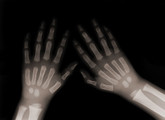Biosimilars/Research
Quality by design for biosimilars
A study into the use of quality by design (QbD) has demonstrated how risk management can facilitate the implementation of QbD in the early-stage product development of biosimilars [1].
Cost savings to be made by switching to Zarzio
Since the first filgrastim biosimilar was approved in 2008, there is now five years of data on which to assess the efficacy, safety and cost-effectiveness of biosimilar granulocyte colony-stimulating factors (G-CSFs). A pooled analysis of post-approval studies of one of the most common biosimilar G-CSFs, Zarzio (filgrastim), is presented by Pere Gascón and co-authors [1]. Their findings highlight significant cost savings in health authority regions that have switched from the originator G-CSF to its biosimilar Zarzio. The study overturns early concerns that cost savings would not be so great as hoped [2].
Regulatory principles for biosimilar monoclonal antibodies
It is sometimes argued that there is less clinical evidence for biosimilars. However, Tsiftsoglou and co-authors pointed out that European Medicines Agency (EMA) guidelines for biosimilars are not primarily driven by feasibility considerations or to make it as easy as possible, but to add to the totality of evidence. And it is this that finally drives the regulatory acceptance of a biosimilar [1].
Are biosimilars worth it?
Will off-patent biological medicines offer the same cost savings as those seen with off-patent non-biological (chemically derived) medicines? A group of health economists based in Brussels, Belgium, have begun to address the question in light of increasing numbers of biological medicines going off patent and the new phenomenon of biosimilar competition [1].
Protein aggregation and the generation of immune responses
During a presentation given by Ms Melody Sauerborn (TNO Triskelion, The Netherlands) at an international conference on biowaivers and biosimilars, held in the US in September 2012, the immunological aspects of formation of anti-drug antibodies against aggregated protein drugs were discussed [1].
How safe is Zarzio after five years’ clinical experience?
The first filgrastim biosimilar was approved in Europe in 2008, prompting Dr Pere Gascón and co-authors to review the evidence relating to the efficacy and safety of biosimilar Zarzio (filgrastim) and Filgrastim Hexal (filgrastim) since that time. The authors report a pooled analysis of post-approval studies of Zarzio (Sandoz) used for the prevention of neutropenia in patients with cancer who are undergoing cytotoxic chemotherapy [1].
Biosimilar epoetin-κ equivalent to epoetin-β
In 1989, the first recombinant erythropoietin (rEPO) preparation, epoetin-α, was approved by the US Food and Drug Administration for the treatment of anaemia associated with kidney disease. Since then, several clinically approved rEPO preparations, such as epoetin-β, epoetin-δ and the epoetin-α derivative, darbepoietin-α, have been commercially produced. Since the expiration of patent protection, a number of biosimilars have also been approved on the world market.
Inflammatory arthritis: auditioning for the role of biosimilar
Targeted biological therapies have proven themselves highly effective in the treatment of inflammatory joint diseases, but their benefits are restricted by cost. Biosimilars of these therapies would offer affordable alternatives, but establishing biosimilarity presents many challenges, write Professors Jonathan Kay and Josef Smolen [1].
Guiding principles for biosimilars development
In contrast to chemically synthesized small-molecule drugs, biologicals have complex structures of high molecular weight. Therefore, even small changes in the production processes may lead to differences in the final product. The manufacturers of the originator product are not required to disclose their manufacturing process after the patent expiry. This gap in knowledge increases the probability of introducing changes in the manufacturing process of biosimilars, making producing an identical copy of a biological virtually impossible. Indeed, even different batches of the same originator biological may show a certain level of heterogeneity.
Use of formularies could increase use of biosimilars
Whether or not the US Food and Drug Administration (FDA) permits automatic substitution of biosimilars, healthcare systems can still consider using formularies as a way to increase the use of more affordable biosimilars [1].











